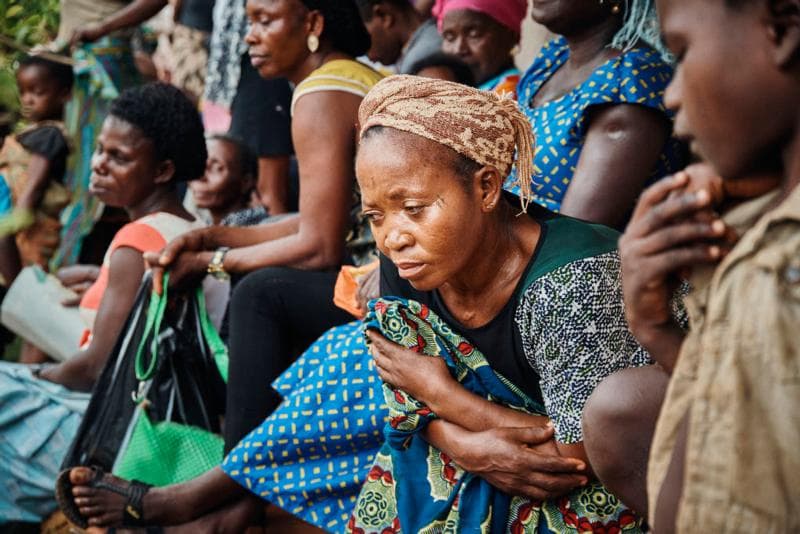YAOUNDÉ, Cameroon – Friday was declared a day of mourning in the Diocese of Kumbo, a week after at least 24 people – most of them children – were killed in Ngarbuh, a village in Cameroon’s North West region.
“We have been reliably informed about a very sad incident, which took place on the 14th of February in the village of Ngarbuh-Ntumbaw in Saint Martin de Porres Parish Ndu,” Bishop George Nkuo said in a statement.
“On Friday, February 14, 2020, the military invaded Ngarbuh at 4 a.m. and we are told that 24 people were killed among whom were pregnant women and little children. Some of the victims were burnt alive and several others wounded. A total of nine houses were burnt down. Hundreds of people from Ngarbuh are currently displaced and seeking for refuge in nearby villages under deplorable human conditions,” the bishop continued.
RELATED: Cameroon priest condemns army for ‘massacre’
Nkuo said that while investigations are continuing about this “ruthless massacre, it is incumbent on us Christians not only to locally condemn these atrocities, but also to immediately reach out to help the new victims find support and livelihood among us.”
The bishop said Caritas, the charitable arm of the local Church, is reaching out to the affected population to offer support.
He said that the day of mourning was meant as a declaration of “Yes to Life and No to death.”
The North West and South West regions of Cameroon are majority English-speaking, and the inhabitants make up 20 percent of the country’s majority French-speaking population.
The two regions have been the center of a growing conflict since 2016, when a protest by Anglophone lawyers and teachers over attempts to change the education and common law systems practiced in the English-speaking regions quickly degenerated into an armed rebellion with many English speakers demanding for outright independence.
The conflict has killed at least 3000 people, and left over 500,000 others displaced, according to the United Nations.
Some of the separatists have declared the independence of a new country – called Ambazonia – although this action hasn’t been supported by the local Catholic Church.
In October last year, the Cameroon government organized what it described as “a Major National Dialogue” to propose solutions to the crisis. A major outcome was the granting of a ‘Special Status’ for the Anglophone communities.
RELATED: Cameroon prelates lead ‘peace caravans’ to troubled Anglophone regions
The massacre in Ngarbuh is the worst violence since the plan was announced.
Nkuo celebrated a Requiem Mass and prayed “for an end to this socio-political crisis that has plunged us into a senseless and painful war.”
The Interim government of the putative Republic of Ambazonia welcomed the bishop’s day of prayer initiative and called on “all Ambazonians” to join the Catholic Church in praying for those killed.
In a statement, Dabney Yerima, Vice President of the Republic of Ambazonia, said the country’s English speakers should always be ready to sacrifice their “sweat, tears and blood “ – the prize they must pay to get independence.
The Cameroon government has denied that the army targeted innocent civilians.
According to a government spokesperson, the military has hunting separatists who had taken refuge in Ngarbuh, where the he claimed they had “set up their rear base there and reorganize the racketeering of users while perpetrating unspeakable abuses on the road leading to Ntumbaw.”
The government said a firefight led to the accidental explosion of a weapons store, which killed five civilians – far below the numbers claimed by innocent observers.
On Feb. 18, the UN human rights office called on Cameroon to conduct an “independent, impartial and thorough” investigation, so “those responsible are held fully to account.”
In addition, a group of international bishops wrote a letter on Feb. 16 urging Cameroon’s President Paul Biya to fully participate in Swiss-brokered talks with the Anglophone separatists.
RELATED: Catholic bishops from around the world urge peace talks to solve Cameroon crisis
“The success of these talks will be critical in Cameroon’s journey towards ensuring peace and your legacy as an effective leader in a troubled region. It is our sincere hope that all interested stakeholders will join these talks and show a spirit of cooperation, pragmatism, and realism to ensure these negotiations succeed. This is what the people of Cameroon, your sons and daughters, God’s children, expect and deserve,” the bishops told the Cameroonian president.













